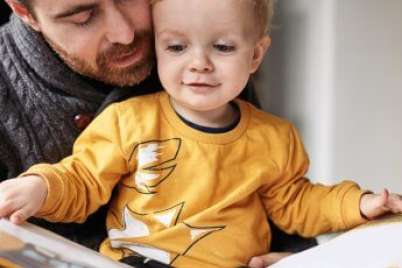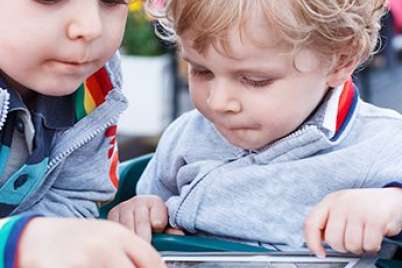
Do your kids a favour: Give them opportunities to fail
As a parent, it’s tough to see our kids upset. We don’t want them to lose or hurt or have a hard time with things. But at the same time, we want them to be able to succeed, which often means overcoming challenges.
That’s why, despite the unpleasantness of it, we must give our kids opportunities to fail.
In “Dear Daughter, I Want You to Fail”, Lyz Lenz – a self-proclaimed perfectionist – recounts how she received her first A-minus in high school and begged her mom to let her drop the class. Despite her tears and angst-ridden notes, her mother wouldn’t budge, instead offering Lenz some invaluable advice: “Better to fail now and learn how to handle it, than fail as an adult and fall apart.”
Now that Lenz has a two-year-old daughter of her own, she tries to follow her own mother’s lead. “I’m constantly encouraging [my daughter] to jump, leap and tip over all she can. I want her to push her limits, to ride the edge, even if that means falling and failing. Yes, I want my daughter to fail.”
Sarah Boesveld takes a similar stance in her article “In Praise of Failure”. She says failure teaches kids to persevere and should be seen as more of a key to success than a roadblock. Without learning to fail, children can’t truly learn how to succeed.
But while both of these writers make a compelling case for failure, they also point out how some parents won’t let their children fail. Lenz calls them “snow plow parents” – those who come between their children and failure, smoothing the path and easing their child’s way into the world. A good example would have been if her mom had pulled Lenz from that class. Boesveld, in reviewing Hara Estroff Marano’s book, A Nation of Wimps: The High Cost of Invasive Parenting, writes about parents who actually apply pressure on teachers and schools to give higher grades than are deserved.
Although these are academic-based examples, this kind of parenting can occur in the realms of physical activity and physical literacy as well.
Imagine your child is learning to skate. She doesn’t like the taste of her helmet strap in her mouth. She cries from falling on the ice. She’s frustrated because she can’t do it yet and begs you not to make her go. All of these things dispirit you. The easy thing would be to drop the lessons and register her for something easier. But then, a few years down the road when her middle-school friends started going out for weekend skates, your daughter wouldn’t be able to join. When she watched Team Canada win gold at the Olympics, and wanted more than anything to be one of those athletes, she wouldn’t have the necessary skills to play on the local team. We must always think of our child’s future, even if that means a little displeasure now.
So whether your toddler doesn’t seem to be developing the fundamental movement skills as quickly as the other kids, or whether your son is scared of the monkey bars because he fell off once, or whether he’s devastated because he didn’t make the team, don’t let him quit. Teach him how to fail and persevere. If you stand by – supporting if need be, but not interfering – and let him work through the tough times, your child will develop the physical skills and the mentality necessary to stay active for life … without giving up.





